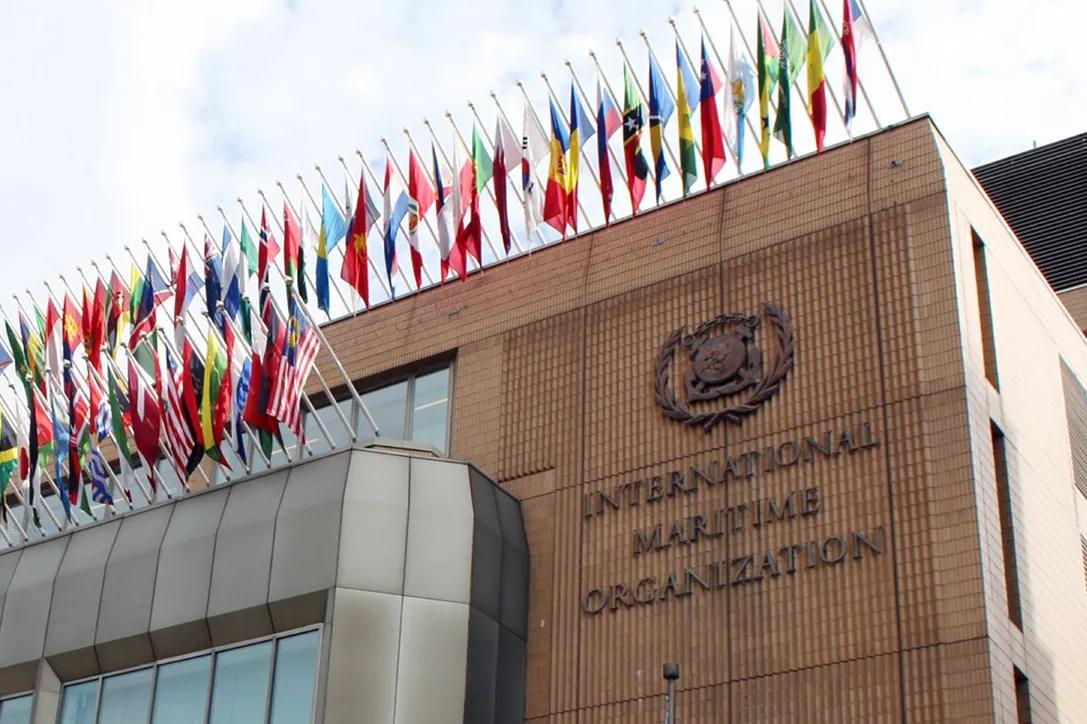

Officials from Pacific and Caribbean island states, which are particularly vulnerable to climate change's effects, say they will only support a more ambitious universal carbon levy on maritime transport.
Photo/Micronesian Center for Sustainable Transport
Pacific nations demand stronger climate action as IMO vote approves carbon pricing for ships
Officials from the Pacific have pushed back on the London agreement, saying the measures are insufficient for effective decarbonisation.


Pacific leaders urge Trump to address tariffs and climate aid concerns in key letter

New Zealand's top cop embarks on historic visit to the Pacific



Pacific leaders urge Trump to address tariffs and climate aid concerns in key letter

New Zealand's top cop embarks on historic visit to the Pacific

The International Maritime Organisation, a United Nations body that oversees shipping regulations, recently announced that most of its member countries have voted to implement a global pricing system and reduce carbon emissions from ships.
Pacific Island nations abstained from the vote in London last week, stating that the proposals did not go far enough to address climate change effectively.
These countries include the Cook Islands, Federated States of Micronesia, Fiji, Kiribati, Nauru, Niue, Palau, Papua New Guinea, Marshall Islands, Sāmoa, Solomon Islands, Tonga, Tuvalu, and Vanuatu.
Officials from Pacific and Caribbean island states, which are particularly vulnerable to climate change's effects, say they will only support a more ambitious universal carbon levy on maritime transport.
They proposed a universal levy on greenhouse gas emissions. This proposal would have created a pathway to steeply reduce shipping emissions, ensure a just and equitable transition, and provide predictable financing for those suffering the most from climate impacts.
After the vote, Manasseh Maelanga, the Solomon Islands' minister of infrastructure development, told the media that his government would not condone this new global pricing system.
He criticised the new pricing system, saying it does not align with the goals that were previously agreed upon.
Maelanga called for a stronger worldwide tax on carbon emissions from maritime transport.
“We cannot support an outcome that does not live up to the agreed strategy,” he told journalists. "We will seek to improve this deal that, unchanged, will cause greater instability and force shipping to continue polluting – that we can not accept."

From 2028, all ships must use fuels that are less harmful to the environment or face financial penalties. Photo/Aaron Favila
Other Pacific leaders and negotiators expressed deep disappointment in the outcome.
Simon Kofe, Tuvalu's Minister for Transport, Energy, Communication and Innovation, told the meeting, “We came as climate-vulnerable countries with the greatest need and the clearest solution. And what did we face? Weak alternatives from the world’s biggest economies, alternatives that won’t get us on a pathway to the 1.5°C temperature limit.
"They asked us to settle for less while we are the ones losing the most. We will not negotiate away our future.”
Ralph Regenvanu, Vanuatu's Minister of Climate Change Adaptation, Meteorology, Geo-Hazards, Environment, Energy, and Disaster Management, blames various parties: “Let us be clear about who has abandoned 1.5°C. Saudi Arabia, the US and fossil fuel allies pushed down the numbers to an untenable level and blocked progress at every turn.
"These countries – and others – failed to support a set of measures that would have gotten the shipping industry onto a 1.5°C pathway. And they turned away a proposal for a reliable source of revenue for those of us in dire need of finance to help with climate impacts.”

Simon Kofe, Tuvalu's Minister for Transport, Energy, Communication and Innovation, addresses the IMO meeting in London on behalf of Fiji, Nauru, Solomon Islands, Tonga, Republic of the Marshall Islands, Palau, Vanuatu, and Seychelles. Photo/Micronesian Center for Sustainable Transport
Starting in 2028, the IMO plans require all ships to use fuels that are less harmful to the environment, or they will face financial penalties. But the measure still needs to be officially approved in an upcoming IMO assembly in October.
Countries like the European Union (EU), Brazil, China, India, Japan, and 63 other states supported the new pricing system. At the same time, 16 nations, including major oil producers like Saudi Arabia, Russia, and the United Arab Emirates (UAE), opposed it.
Interestingly, the United States did not participate in the vote, which reflects a retreat from environmental protections under previous US administrations.
Friday's agreement follows a week of extensive discussions in London to find ways to achieve carbon neutrality in shipping by the year 2050.
Ships that exceed the allowed greenhouse gas emissions will be charged fees for every extra tonne of emissions they produce.

Photo/IMO/Alfonso Roca
The revenue from these fees is intended to support the development of cleaner shipping technologies and assist poorer nations in transitioning to more environmentally-friendly practices.
While some experts welcomed the progress, they also emphasised that more needs to be done.
Mark Lutes from the World Wildlife Fund for Nature says while this is a significant step forward for the shipping industry, the plan still lacks the necessary ambition to truly reduce emissions.
“This is a groundbreaking moment for the shipping industry, which should signal a turning of the tide on greenhouse gases from global shipping,” Lutes says in a statement.
“However, key aspects of this agreement fall short of what is needed and risk blowing the transition off course."

Pacific officials at the IMO London meeting say they will return to MEPC in October. Photo/IMO media
The International Chamber of Shipping (ICS), which represents shipowners and operators, also approved the recognition of the need for investment in cleaner fuels.
But the ICS raised concerns that the current framework might not provide enough certainty for necessary changes.
Constance Dijkstra, a policy manager at the Transport & Environment lobby group, told the AFP that switching to biofuels was not the answer, describing the mass production of such energy as “very worrying for deforestation”, even if Brazil disagrees.
Lastly, IMO member countries agreed to establish a “control area” in the northeast Atlantic to limit the use of the dirtiest fuels near the coasts of Western Europe, Iceland, and Greenland, marking another effort to reduce pollution from ships.
The Pacific will return to MEPC in October, and their message is clear: This is not the end. “We are not done. We will be back,” Ambassador Albon Ishoda, Marshall Islands' Special Envoy for Maritime Decarbonisation, says. “Alongside our friends from the Caribbean, the Pacific, Africa, Central America, and the UK. Still standing. Still steering.”

